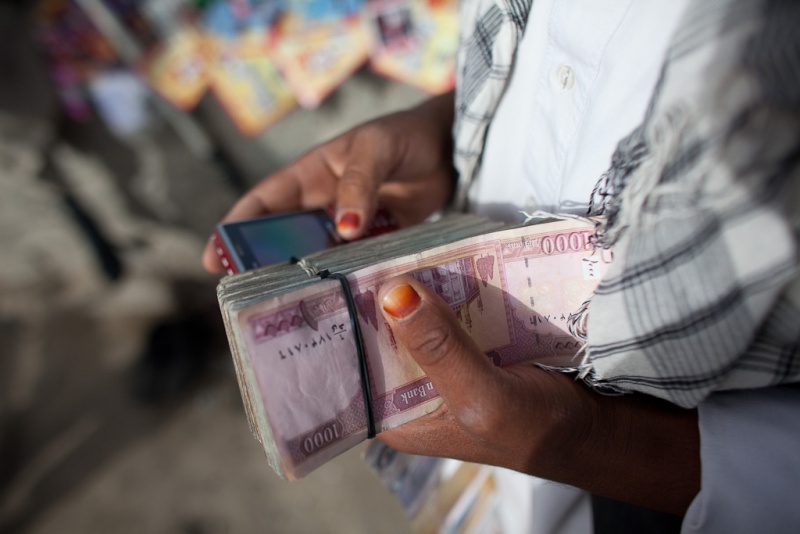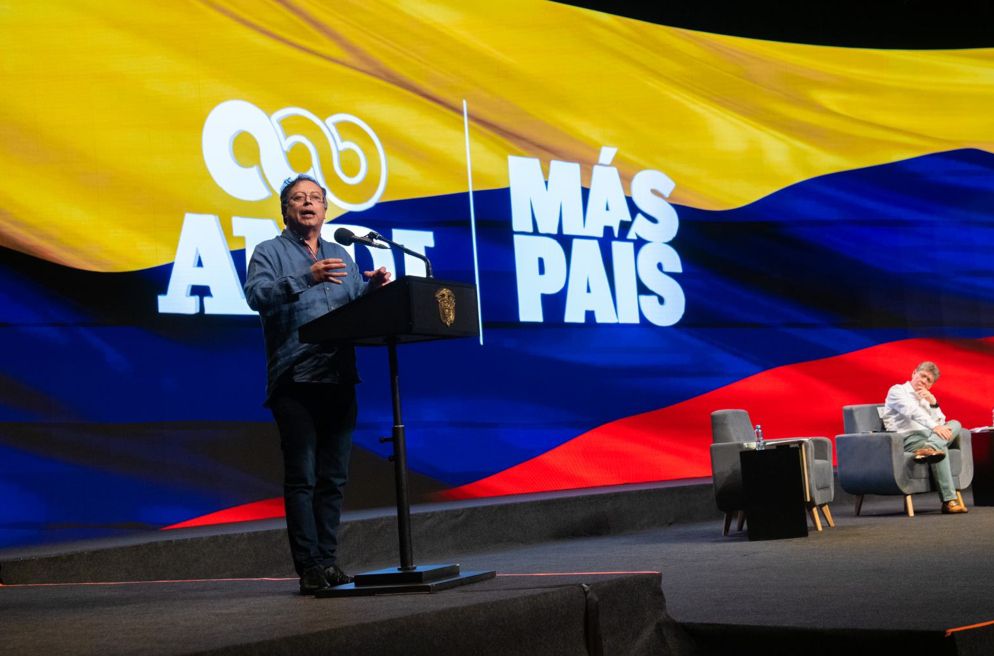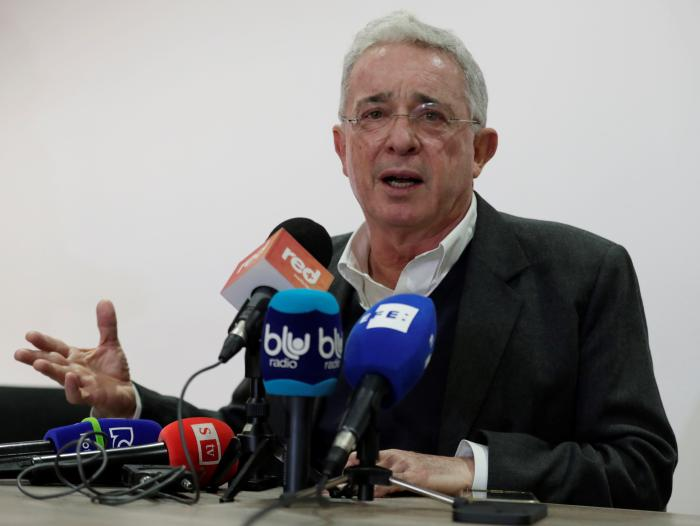Professor Robert Wade discusses Brazil’s upcoming hosting of the G20 summit, outlining its challenges in navigating global governance dynamics, geopolitical tensions, and the quest for inclusivity and legitimacy within the forum.
The president and government of Brazil host the next G20 summit, in Rio de Janeiro, November 18-19, 2024. It is the high point of several major global gatherings the government of Brazil will host in 2024 and 2025, including the Clean Energy Ministerial meeting in 2024, the presidency of the BRICS in 2025, and presidency of the climate COP30 in 2025.
G20 overview
To put Brazil’s G20 challenges in perspective we begin with a recap of the origin and membership of the G20. It comprises 19 states, plus the European Union; plus, as of 2024, the African Union. The members were selected by the G7 states in response to massive debt crises spreading across the developing world in 1997-1999, starting in East Asia. The G7 worried that the crises might ricochet back onto them; and recognized that it was foolish to meet on their own to decide appropriate policy action. So they agreed to enlarge their group by adding another 12 states to make 19 “systemically significant” states, plus the European Union. (To be more exact, the US Treasury and the German Finance Ministry selected the members, obtained approval from the other G7, and sent out the invitations.)
The member states include: US, Canada, UK, France, Germany, Italy, Japan (these are the G7); Australia; China, India, Russia, Brazil, South Africa (these are the BRICS, though not identified as such when the G20 was formed), Mexico, Argentina, Turkey, Saudi Arabia, South Korea, Indonesia. Eight developed countries (of which four European), eleven developing countries. Plus the European Union. Having an apparent majority of developing countries (not counting the inclusion of the European Union) was an attempt to gain legitimacy by moving away from the standard model of global governance since the Second World War in which developed country preferences set the agenda (as in the aid regime, where “donors” preferences prevail over “recipient” preferences).
The first meeting of the G20F (finance ministers and central bank governors) was held in late 1999 in Berlin. From then until 2008 the G20F met at finance minister and central bank governor level (in practice mostly at deputy’s level) in a low-key kind of way, once or twice a year.
Then came the North Atlantic financial crisis of 2008-09. By this time pressure had been growing from some G7 states (notably Canada) to upgrade the G20 to heads of government level. But as the financial crisis hit, the UN — especially the president of the General Assembly — made a strong bid for the UN and General Assembly to be the appropriate venue for debating the crisis and what to do. UN involvement was the last thing President George Bush and his government wanted. So, though initially reluctant, the Bush government agreed to upgrade the G20 to leaders’ level, and hosted the first G20L in Washington, late 2008. Soon after, the G20 began calling itself “the steering committee for the world economy”, or “the premier forum for international economic cooperation”. The push from the General Assembly died (Wade 2024).
Being recently created in a world order of states much more multipolar than when the “legacy” global governance institutions like the UN and the Bretton Woods organizations were created, the G20 raises one of the most pressing questions of our time: to what extent our more multipolar world can be ordered by a universal frame of agreed values and rules (“a rules-based international order”) — covering areas like trade, finance, reserve currencies, technology standards, health, environment, human rights — or to what extent it becomes a world of multiple orders in separately co-existing, often adversarial, relationships with each other? The G20 expresses the hope that the diversity of interests and values can be negotiated sufficiently to make real progress on issues that pose dangers to the future of our planet. G20 informal consensus decisions do not carry the authority of formal multilateral organizations, but the informal “gardening” that goes on at and during the build-up to the summits generates trust that helps to avoid breakdown when big power tensions rise; at least, this is the hope (Wade 2023, 2024).
The first several summits, starting in 2008, focused on a collective agenda for handling the North Atlantic financial crisis and its aftermath. The emphasis was on G20 instrumental effectiveness in proposing solutions to financial fragility that caused the financial crisis (Vestergaard and Wade 2012a).
More recently (particularly since the Mexican presidency in 2012) the focus shifted towards being a platform for the host’s leader, government and people to present themselves to the world as “world leaders” – an opportunity for drama not offered by any international governance body previously.
Moreover, the fact that the hosting function rotates annually between the G20 members means that its 11 developing country members have this opportunity, not only the traditional big powers.
The G20 operates a Troika system of hosting, where the Troika consists of the past, present, and next presidencies to ensure a seamless transition from one host to the next. Until 2023, the Troika always included a Global North state, such that a Global North country almost always followed a Global South country. India’s presidency in 2023 was the first time the Troika consisted of Global South countries, with Indonesia-India-Brazil. Brazil’s presidency is also in a Global South Troika, India-Brazil-South Africa. This four-year stretch has been hailed in some circles as – finally — the “Southernization” of the G20, where leaders of developing countries collaborate to set the discussion agenda for leaders of developed countries, for a change.
In the years since the early summits the G20 process has mushroomed in all directions. As well as the annual summits, the finance ministers and central bank governors continue to meet regularly, more recently complemented by G20 meetings of ministers of departments like Agriculture, Trade, Health, Tourism and more. These meetings of senior politicians are supported by a dense array of “sherpa” and working groups of all kinds staffed by civil servants.
Also, G20 non-state “engagement groups” have proliferated, to discuss proposals to feed into the more formal G20 process. These engagement groups now include B20 (Business), Y20 (Youth), L20 (Labor), T20 (Think tanks and research institutes), C20 (Civil), W20 (Women), S20 (Science), and several more, each with an international chapter and the host country’s national chapter. Many thousands of people are involved in these groupings, and each stream meets several times in the build-up to the summit. So the G20 has moved far from its origins as a grouping of state representatives, though the latter continues to constitute the core. But remember that the non-state engagement groups come almost exclusively from the G20 states, omitting the governments and populations of some 170 states.
In short, the G20 affirms the image of the new multipolar world order as a (relatively) cooperative order. But the image has become increasingly disconnected from the reality. The reality is that the multipolar order has become increasingly less cooperative over the past decade, and the governmental relationships between the US and Europe, on the one hand, and developing countries on the other, has substantially eroded (Conway 2024). The West’s “vaccine apartheid” in 2021 as Covid vaccines came on stream – buying up far more than could be used while most of the rest of the world went without – caused deep resentment. Similarly do the West’s ongoing lectures on how developing countries must move to “net zero” while it gives little assistance with finance or technology for green growth. Tensions between the West and Russia have become acute since Russia invaded Ukraine in early 2022, and tensions with China are steadily rising.
Unsurprisingly, the G20 summits of the past several years have struggled to issue a communiqué, and the communiqués or declarations have been increasingly empty.
In this context, we now discuss a few of the challenges Brazil faces as summit host for 2024.
Brazil as insider and outsider
Hosting the G20 poses tensions between Brazil’s “insider” and “outsider” identities. To the extent that it highlights its equality of status with the big powers of the G20 – presiding over the (self-identified) High Table of global economic and environmental governance – it may compromise its role as a leader of the Global South, often in adversarial relationships with the Global North. Even as it highlights its leadership role in the G20, Brazil – especially President Lula – also highlights its leadership role in the alternative exclusive club, the BRICS. Lula feels most comfortable presenting himself as champion of the Global South, making himself its most prominent public face.
However, Lula has become more ambivalent about projecting the BRICS as the spearhead of developing countries. When the issue of widening the membership of the BRICS was under discussion (to include Egypt, Ethiopia, Iran, Saudi Arabia, UAE), Brazil was a lot more wary than China. Lula’s chief foreign policy advisor now elevates the G20, saying, “I think the G20 is the closest thing to a representative body in the international community” (Cooper 2023, 55). You wonder what notion of “representation” the advisor has in mind.
Navigating geopolitical tensions
Like Indonesia and India before it, Brazil has to navigate difficult geopolitical tensions within the G20. The G20 defines itself as focused on economics, finance and environmental sustainability. But unlike in the first cold war when “security” and “economy” were quite separate spheres (economic exchange between the West and the Soviet Union was very small), today in the second cold war, now between the US and some of its allies, and China, the two sides are linked by dense economic interdependence, and security issues impregnate much of the economy. “Weaponize” has become a familiar word, as in “weaponize currency, trade and technology” (Wade 2023 ).
The most obvious geopolitical tension comes from the ongoing war between Russia and Ukraine. Russia is a member of the G20,and is backed cautiously by China (a leading member of the G20). Ukraine is backed by the US (another leading member of the G20) and its western allies (many in the G20). As G20 hosts in successive years of Russia’s invasion, Indonesia and India both tried to deflect attention from the issue, and substantially succeeded by careful drafting of the outcome documentation. Careful drafting at the India summit concealed disagreements by saying that the G20’s role was not to be a “platform to resolve geopolitical and security issues”, while also affirming it was against “the threat or use of force to seek territorial acquisition against the territorial integrity and sovereignty or political independence of any State … [and] the use or threat of use of nuclear weapons.” It helped that both Putin and Xi were absent from India’s G20 summit. Few leaders have not attended summits in the G20’s history, and the absence of these two in 2022 is another sign of the G20’s weakening.
Another obvious tension is between China and India. Melee fighting erupted on their border in mid-2020, with some 20-35 Chinese and Indian soldiers killed. Border tensions remain. At G20 meetings both governments have been concerned to obtain collaboration on certain issues from the US and other western allies, including France, without supporting each other.
Navigating the international trade and industrial policy tensions
As though the geopolitical tensions were not enough, Brazil also has to navigate acute tensions in strategic sectors of international trade and industrial policy. The Biden government is targeting assistance for strategic sectors with trillions of dollars in state assistance, the second biggest industrial policy package in world history; supplemented by high tariffs and restrictions on US firms’ – and even its allies’ firms’ – exports of high tech to China.
Meanwhile China is targeting assistance for strategic sectors with the first biggest industrial policy package in world history. Its industrial firms received loans from state-directed banks amounting to $670 billion in 2023, up from $83 billion in 2019, and are now automated with more robots than the rest of the world combined (Bradsher 2024). This wave of investment has yielded a surge of highly subsidized exports of high-tech products which collide with US efforts to boost production in the same sectors.
Both sides accuse the other of not playing by the rules of international trade. Lael Brainard, head of the White House National Economic Council, said recently, “China cannot export its way to recovery. China is simply too big to play by its own rules.” China’s Commerce Ministry replied, saying, “We urge the US to respect the facts and multilateral rules, immediately stop its wrong practices and return to the rules-based multilateral trading system (Tankersley and Rappeport 2024).
Virtually all the other developed country governments in the G20 share the US fear that many factories will close in the next several years, unable to compete with China’s factories. Many developing countries fear the same. Brazil’s once-flourishing manufacturing sector has been knocked out by Chinese imports (including most of the famously glamorous costumes for Carnevale!), paid for by huge growth in commodity exports to China.
Meanwhile some European political leaders claim that the US policies amount to “a declaration of war” on Europeans, to quote Robert Habeck, Germany’s vice chancellor and economics minister, because of how they attract European firms to invest in the US to obtain the subsidies and protection (Chazan et al. 2023).
Invite Putin?
Would Putin be arrested if he comes to the Brazil summit? Brazil is a signatory to the Rome Statute that empowers the International Criminal Court to issue arrest warrants, and it has issued such a warrant against Putin for alleged war crimes in Ukraine. At the India G20 summit in September 2023 Lula said Putin would be welcome at his summit. He has subsequently scaled back, saying it would be a matter for “the Brazilian Judiciary”. He pointed out that Russia, China, and India are not signatories to the Rome Statute, while the US has rescinded its accession to the ICC. Brazil too must review its decision to accede, he said.
Role of African Union?
Brazil faces a challenge on the representation front. India’s 2023 hosting resulted in bringing in the African Union as a permanent member (not just “permanent invitee” like Spain). Now the Brazil summit must decide on the role of the AU; for example, participation in some tracks or complete integration? Name change to G21 or no name change?
Leveraging more finance out of the Global North
Brazil must try to mobilize lots of finance for “climate change and sustainable development”, which means persuading states of the Global North to donate resources to the Global South – a perennial issue for which the Global North has learnt to voice support while dragging its feet in a near-perpetual cycle of verbal support and little delivery.
Linked to this is the perennial G20 issue of “reform of global institutions”, notably the IMF and World Bank. The G20 outcome documents repeatedly call for raising the quota (and vote) shares of developing countries, especially very under-represented China. But within these organizations the European states resist a dilution of their large over-representation, to US annoyance, and the US resists any significant increase in China’s voice. (In the IMF, the US gets 16.5% of the total quota and voting rights, enough to make it the only member with a veto, China 6.4%, and European states almost one third.) We can be confident that the summit will yield declarations about the need for much more “blended finance and innovative financial solutions”, paving the way for more declarations of the same at the 2025 and 2026 summits.
Securing agreement on a global minimum tax on the world’s 3,000 billionaires
Brazil’s finance minister, Fernando Haddad, together with counterparts in South Africa, Germany and Spain, are pushing the G20 to cooperate on raising taxes on hypermobile wealthy individuals, building on the earlier G20 cooperation that resulted in a 15% global minimum tax on multinational companies. G20 countries are home to four out of five of the world’s billionaires. Haddad has linked the uneven distribution of wealth to climate worsening. There is a reasonable prospect that G20 support on this issue will go beyond hot air (Schulze et al., 2024).
What to do about the obvious representational illegitimacy of the G20?
Finally, a non-challenge which should be a challenge: we can be sure that the obvious representational illegitimacy of the G20 will remain invisible. G20 champions describe it as “an inclusive body” (Cooper 2023, 49) or “one of the most democratic multilateral forums” (Rakhra 2023, 79), pointing to such measures as the high share of world GDP and population accounted for by its members; and to rising civil society participation in the G20 engagement streams (but mostly civil society in the G20 member states).
The champions make no mention of the point that some 170 states are permanently excluded: Indonesia permanently in, Vietnam and Malaysia permanently out; South Africa permanently in, Angola, Ethiopia and Nigeria permanently out; Britain permanently in, Ireland and the Nordics permanently out; Australia permanently in, New Zealand permanently out; Argentina permanently in, Colombia permanently out. This is quite different to the Bretton Woods organizations, where every member state is part of a representational system, several major states representing only themselves, the others gathered into constituencies within which the occupancy of senior roles rotates between constituency members.
The issue that will not be discussed at Brazil’s G20 is whether a broadly similar representation system should be introduced into the G20 in the expectation that it will gain “input” legitimacy (representation) which translates into more “output” legitimacy (effectiveness). (Vestergaard and Wade, 2012b, Wade 2024).
Conclusion
As of April 2024, the G20 name and its swirling rainbow logo are all over Rio, and non-state “engagement groups” are gathering – in person and remotely — to discuss proposals to feed into the more formal G20 process. The Think20’s (T20’s) call for “policy briefs” in early 2024 attracted a thousand or so abstracts from around the world (not just from G20 countries), from which the T20 coordinating committee selected about 400 for elaboration into 10 page briefs. As an essay on participation of non-state actors says, “Assessing the impact of non-state actors on the G20 agenda-setting and policymaking is extremely complex” (Loureiro 2023).
In short, as well as trying to steer the G20 towards shared solutions to shared global problems, Brazil is playing up its host role as a symbol of its deserved high status in the hierarchy of nations, and as a way to gain legitimacy for Lula’s domestic priorities, including to reduce Brazil’s extraordinary level of income and wealth inequality, not a popular idea with Brazil’s super-rich elite, a sizable proportion of whom think he should still be in jail.
Andrew Cooper concludes his assessment of the coming summit, “The only certainty is that the choice [of how to navigate the domestic and external agendas] will be made under conditions that justify the interpretation of the G20 Summit as a high-stakes, high-drama event, with Brazil and Lula center stage” (2023, 59).
References
Bradsher, Keith, 2024, “China’s export dominance causes worry”, New York Times (International), April 23
Chazan, G. et al., 2023, “A global subsidy war? Keeping up with the Americans”, Financial Times, July 13
Conway, Ed, 2024, “Bond between rich world and rest is broken”, The Times, April 25
Cooper, Andrew, 2023, “Brazil hosting of the 2024 G20: promise and impediments in a high-stakes, high-drama summit”, Brazilian J. International Affairs, Oct-Dec, 45-61
Loureiro, Marcia, 2023, “G20: participation of non-state actors and prospects for the Brazilian presidency”, Brazilian J. International Affairs, Oct-Dec, 21-35
Rakhra, Kanica, 2023, “The G20 as a multilateral force”, Brazilian J. International Affairs, Oct-Dec, 77-94
Schulze, Svenja et al., 2024, “Ministers of Germany, Brazil, South Africa and Spain: why we need a global tax on billionaires”, Guardian, April 25
Tankersley, Jim and Alan Rappeport, 2024, “China threatens Biden’s industrial agenda”, New York Times (International) April 20-21
Vestergaard, Jakob, and Robert H. Wade, 2012a, “The governance response to the Great Recession: the ‘success’ of the G20”, J. Economic Issues, XLVI, n.2
Vestergaard, Jakob and Robert H. Wade, 2012b, “Establishing a new Global Economic Council: governance reform at the G20, the IMF and the World Bank”, Global Policy v.3, n.3
Wade, Robert H. 2023, “The new Great Game: big-power politics behind the come-back of industrial strategy and managed trade”, Global Policy, October
Wade, Robert H. 2024, “The G20 should be replaced with a legitimately constituted Global Economic Council”, paper for Innovation Dialogue, part of the T20 engagement stream, Rio de Janeiro, 11 April
The views expressed in this post are those of the author and do not reflect those of the International Development LSE blog or the London School of Economics and Political Science.
Featured image: Flags of G20 nations inside the main meeting room of the London Summit, 2 April 2009; Crown copyright. Image credit: Downing Street via Flickr.





